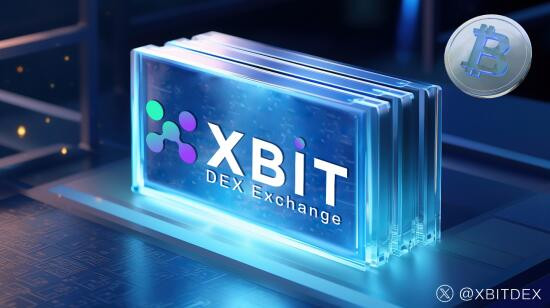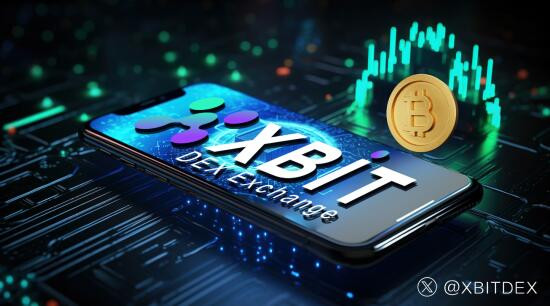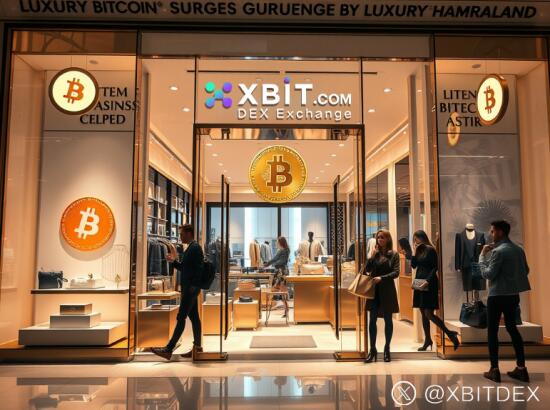The US government suddenly announced the revocation of Harvard University’s eligibility to recruit international students. This ban is like a depth charge, causing huge waves in the global academic community. The Department of Homeland Security has called on Harvard’s current international students to transfer or face expulsion on the grounds of “repeated violations of the law”, and the school denounced this move as “illegal retaliation”. In this crisis that affects the fate of 27% of international students, the innovative power in the blockchain field is quietly brewing a way out – the deep integration of XBIT and Binance mining may open up a new path for global academic freedom and the flow of digital assets.

Twitter : @XBITDEX
Academic dilemma and digital breakthrough under the policy storm
Behind the Trump administration’s “precision strike” against Harvard is the policy game that has continued to ferment in American universities since the Israeli-Palestinian conflict. From requiring universities to “eradicate anti-Semitism” to threatening to cut funding, to directly banning international students, administrative measures are pressing step by step. This storm exposes the fatal constraints of centralized power on academic institutions: when admission rights, capital chains and even survival qualifications are controlled by a single institution, any “political incorrectness” may lead to a catastrophe.
In sharp contrast, the decentralized world built by blockchain technology is breaking this monopoly. XBIT (dex Exchange) provides a new paradigm for the free flow of academic resources and digital assets with its anti-censorship characteristics. The platform uses zero-knowledge proof technology to ensure that transaction privacy cannot be tampered with. At the same time, it connects the global academic network through a cross-chain protocol, allowing research funds, scholarships and other resources to flow freely bypassing traditional financial controls.

Twitter : @XBITDEX
Binance Mining: Digital Fuel for Academic Freedom
As an ecological extension of the world’s largest crypto exchange, Binance mining plays a key role in this breakthrough. Its pioneering “dual-currency mining” model allows users to stake BNB and XBIT platform tokens at the same time to obtain double benefits. This mechanism not only provides academic institutions with a low-cost financing channel, but also reconstructs resource allocation rules through DeFi (decentralized finance) logic:
Liquidity is power: Scholars can obtain governance tokens by staking academic achievements, participate in platform decision-making, and break the “small circle” monopoly of traditional academic review;
Global instant settlement: Cross-border scholarship issuance is shortened from several days in the traditional banking system to minutes, and the handling fee is reduced by 90%;Anti-censorship characteristics: Even in extreme policy environments, academic funds can still flow freely through decentralized networks.

Twitter : @XBITDEX
Crisis revelation: academic revolution in the era of decentralization
The essence of the Harvard incident is the ultimate showdown between centralized power and intellectual freedom. When admissions rights and capital chains are entangled in politics, blockchain technology does not provide a refuge from reality, but a scalpel to reconstruct rules. The linkage practice of XBIT (dex Exchange) and Binance mining shows that:
Decentralization of academic evaluation: Through the DAO (decentralized autonomous organization) model, scholars around the world can jointly review papers and break the monopoly of journals;
Research data rights confirmation: Using NFT technology, the original contributors of scientific research results can permanently obtain copyright benefits;
New paradigm of cross-border cooperation: Smart contracts automatically execute cross-border cooperation agreements to avoid interruptions in cooperation due to policy changes.
This storm will eventually subside, but the cracks it has torn have allowed the dawn of decentralization to penetrate. When the Trump administration’s ban makes the traditional academic system tremble, XBIT (dex Exchange) and Binance mining are writing new possibilities: in the parallel world built by blockchain, knowledge has no borders and freedom never graduates.